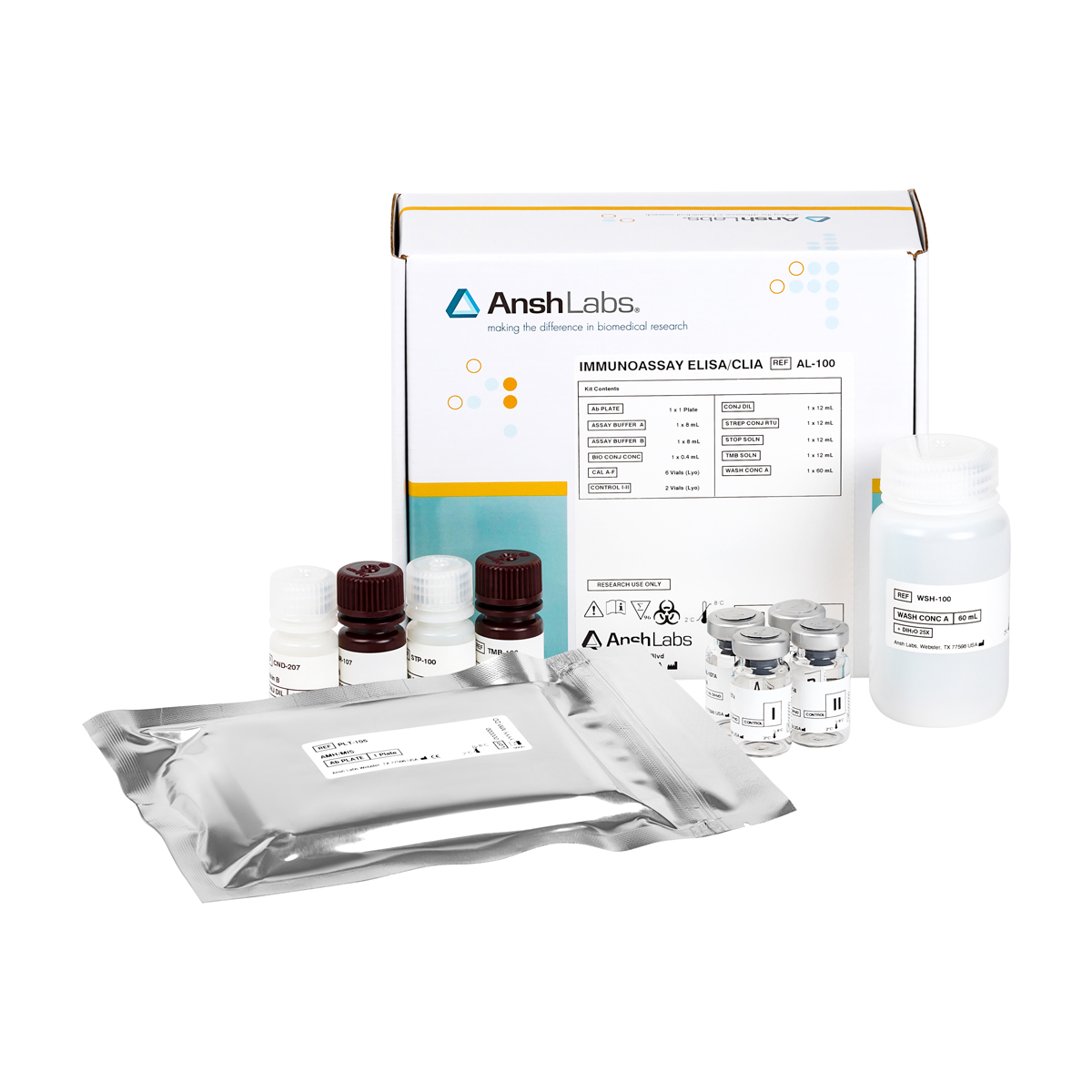The Porcine Anti-Müllerian hormone (AMH) enzyme-linked immunosorbent assay (ELISA) kit provides materials for the quantitative measurement of AMH in porcine serum and other biological fluids.
| Catalog Number | |
|---|---|
| Packaging | 96 well microtiter |
| Detection | HRP-based ELISA, colorimetric detection by dual wavelength absorbance at 450 nm and 630 nm as reference filter |
| Dynamic Range | 0.125-8 ng/mL |
| Limit of Detection | 0.055 ng/mL |
| Sample Size | 50 µL |
| Sample Type | Serum |
| Assay Time | 3.5 hours |
| Shelf Life | 24 months |
| Species Reactivity | Porcine Serum |
| Availability | Worldwide |
Anti-Müllerian hormone is a 140 kDa glycoprotein that is produced during normal embryogenesis by the Sertoli cells of the embryonic testis, causes the involution of the Müllerian duct, and inhibits female gonadogenesis by inducing apoptosis of target gonadal cells. It belongs to the transforming growth factor-β super family. AMH causes apoptosis of specific Anti-Müllerian inhibiting substance (MIS) receptor-bearing cells, while having no effect on cells without receptors. AMH is also expressed in granulosa cells of preantral and small antral follicles in the ovary, and AMH inhibits recruitment of primordial follicles into the pool of growing follicles, and decreases responsiveness of growing follicles to FSH.
References:
1. HHS Publication, 5th ed., 2007. Biosafety in Microbiological and Biomedical Laboratories. Available http://www.cdc.gov/biosafety/publications/bmbl5/BMBL5
2. DHHS (NIOSH) Publication No. 78–127, August 1976. Current Intelligence Bulletin 13 – Explosive Azide Hazard. Available http:// www.cdc.gov/niosh.
3. Approved Guideline – Procedures for the Handling and Processing of Blood Specimens, H18-A3. 2004. Clinical and Laboratory Standards Institute.
4. Kricka L. Interferences in immunoassays – still a threat. Clin Chem 2000; 46: 1037–1038.
